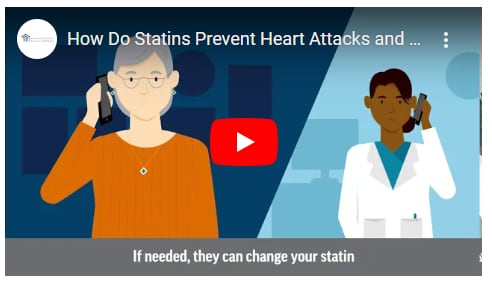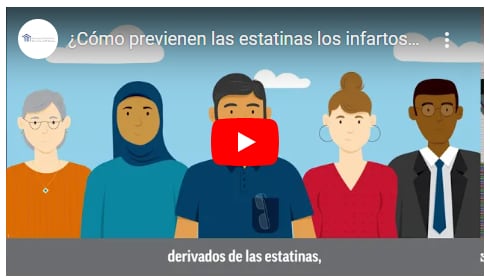Key points
Help DHDSP spread awareness by sharing these resources on your social media pages.
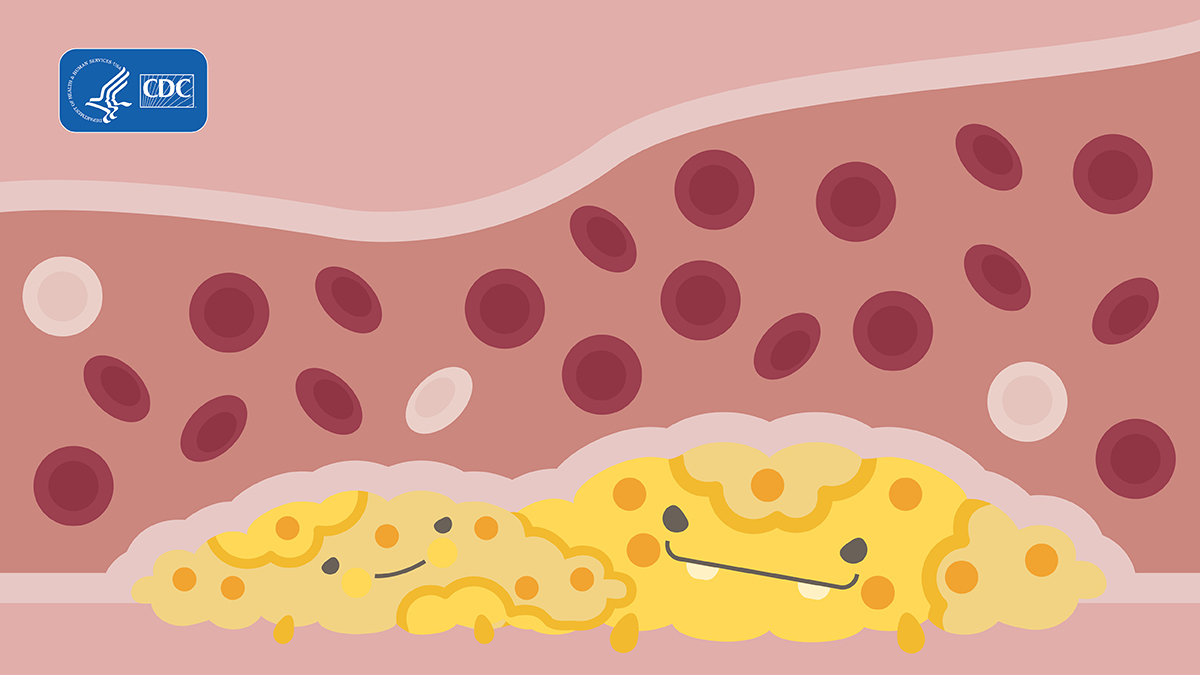
How to use this toolkit
With the support of health professionals like you, CDC's Division for Heart Disease and Stroke Prevention (DHDSP) is better able to educate the public about cholesterol management.
The social media messages and graphics below can help your audiences understand what cholesterol is and why managing cholesterol is important for reducing the risk of cardiovascular disease (CVD).
Help DHDSP spread awareness by sharing these resources on your social media pages.
What's included
High cholesterol resources for individuals and patients
- Get a Cholesterol Test: Patients can learn about how their health care team can do a simple blood test, called a "lipid profile," to measure their blood cholesterol levels.
- Cholesterol Myths and Facts: Learn the answers to common questions about blood cholesterol.
- The Scoop on Statins: What Do You Need to Know?: This webpage and handout from the Million Hearts® initiative describe what patients need to know about their cholesterol medicines.
Spread the word
Share these social media messages with your followers. Don't forget to tag @CDCHeart_Stroke in your posts and follow us on social media.
X (Twitter)
- Cholesterol: What is it, and why is it important? Learn why managing #BloodCholesterol is important for the #heart and brain. http://bit.ly/2loCY9m
- High blood #cholesterol typically has no signs or symptoms, so it's important to talk to your doctor about getting your cholesterol checked. http://bit.ly/2AtTuvx
- Do you know the difference between LDL and HDL #cholesterol? @CDCHeart_Stroke explains. http://bit.ly/2kxTyCA
- About 35% of American adults have high #cholesterol. You can make healthy lifestyle choices every day to lower your risk. @CDCHeart_Stroke shares how you can get started. http://bit.ly/2wjRLUm
- Making lifestyle changes can help keep your #cholesterol in a healthy range. Exercise regularly, avoid foods high in saturated fat, and if you have high cholesterol, take medicines as directed. Learn more from @CDCHeart_Stroke. http://bit.ly/2DLXXMZ
- If you take #cholesterol-lowering medications, it's important to stick to the script. Talk to your doctor to find the management plan that works best for you. http://bit.ly/2IzTQ89
Facebook/LinkedIn
- Cholesterol: What is it, and why is it important? Learn why managing blood cholesterol is important for the heart and brain. http://bit.ly/2loCY9m
- High blood cholesterol typically has no signs or symptoms but can lead to heart attacks and strokes. That's why it's important to have your cholesterol checked by your health care team. All it takes is a simple blood test. Learn more from CDC [tag]. http://bit.ly/2AtTuvx
- There are two types of blood cholesterol: LDL ("bad") and HDL ("good"). Too much LDL cholesterol or not enough HDL cholesterol in the body can cause a buildup, called "plaque", on the walls of blood vessels. http://bit.ly/2kxTyCA
- Several factors that are beyond your control, such as your age, sex, or family history, can increase your risk for high blood cholesterol. The good news is that you CAN control many other risk factors through healthy lifestyle choices. Here's how. http://bit.ly/2wjRLUm
- Making lifestyle changes can help keep your blood cholesterol in a healthy range. Start by exercising regularly, avoiding foods high in saturated fat, and taking medicines as directed. Learn more. http://bit.ly/2DLXXMZ
- If you take cholesterol-lowering medications, it's important to take them as directed and to have your cholesterol levels monitored regularly. Talk to your doctor to find a management plan that works best for you. http://bit.ly/2IzTQ89
Raise awareness for these health observances
Observance
Date
Hashtag
American Heart Month
February 2024
#HeartMonth
National Nutrition Month®
March 2024
#NationalNutritionMonth
High Blood Pressure Education Month
May 2024
National Stroke Awareness Month
May 2024
#StrokeMonth
National Cholesterol Education Month
September 2024
#CholesterolEducationMonth
Animated social cards and graphics
Download and share these cholesterol-related social cards and animated graphics on your social media pages. Right-click to save each image.
How blood cholesterol works
These illustrations are intended to highlight the nature of high blood cholesterol in an engaging way that can encourage your audience to learn about cholesterol without feeling intimidated by complex imagery.
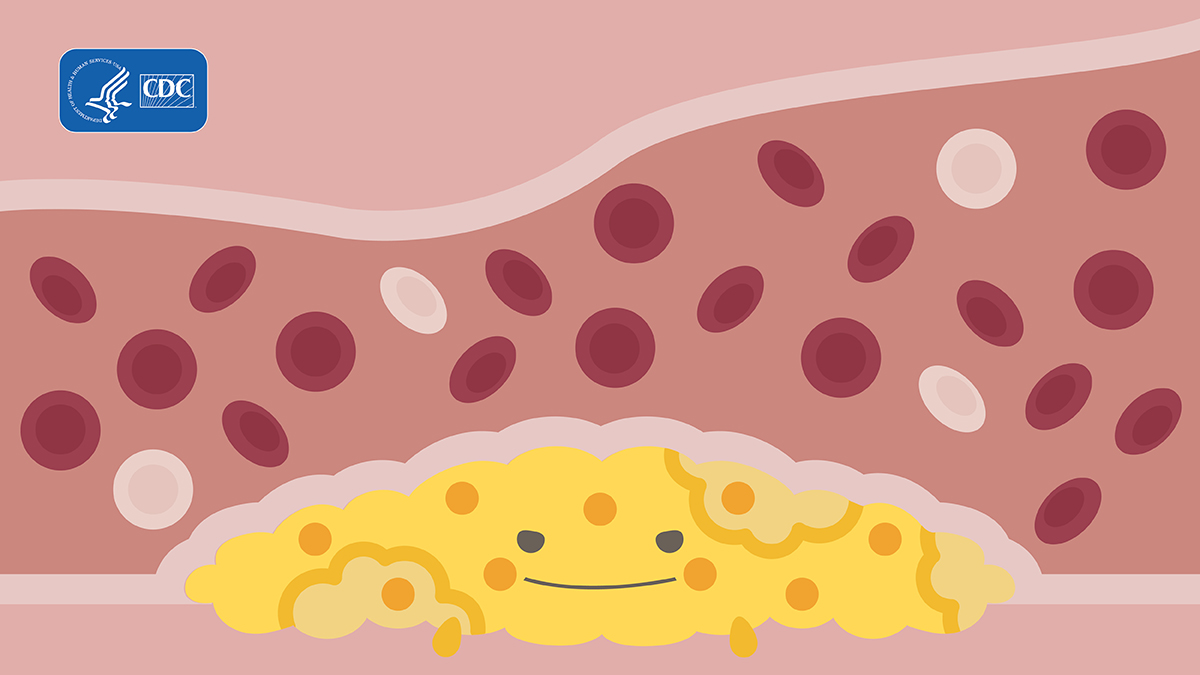

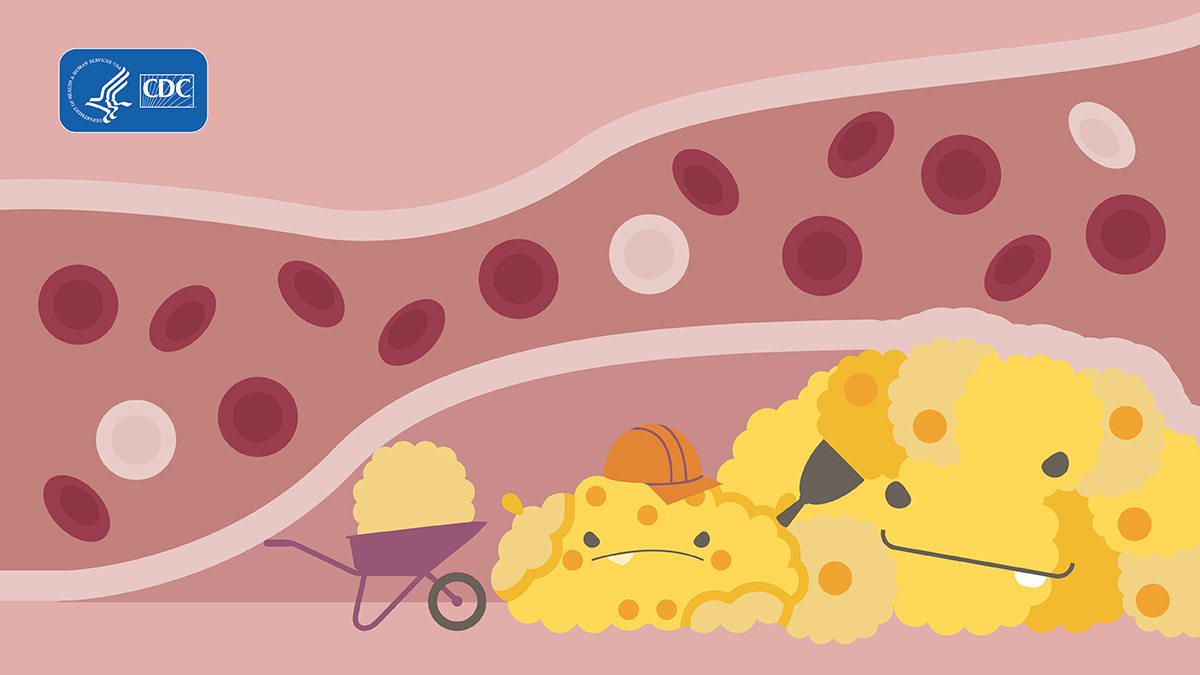
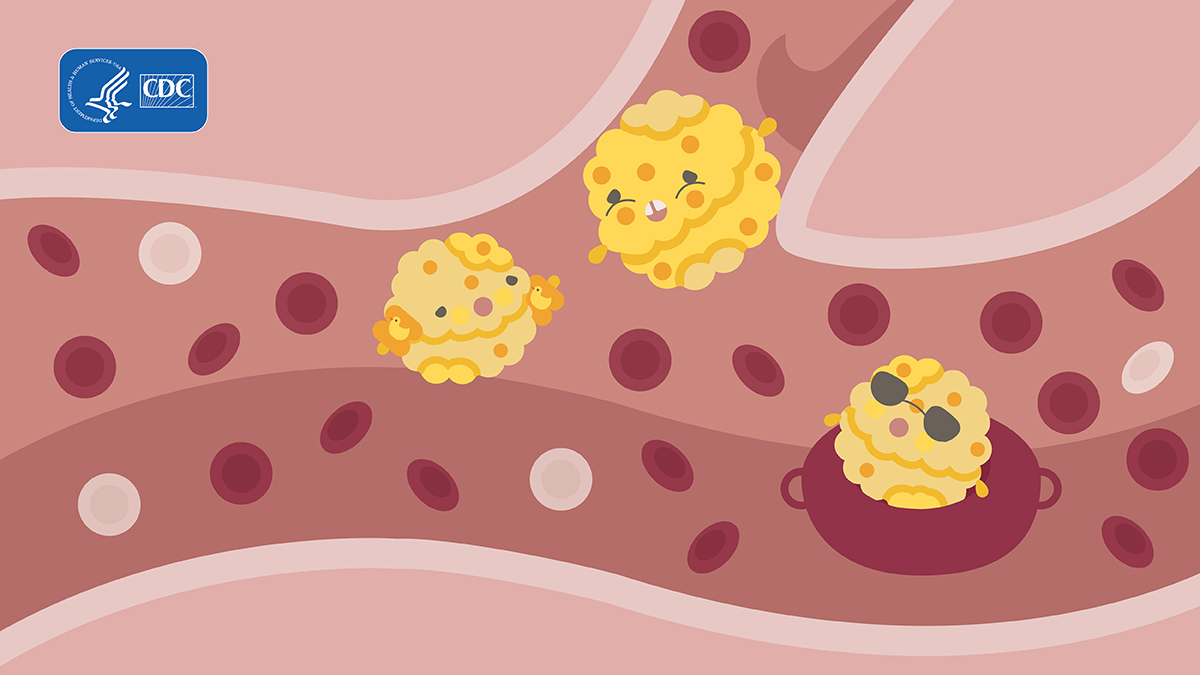
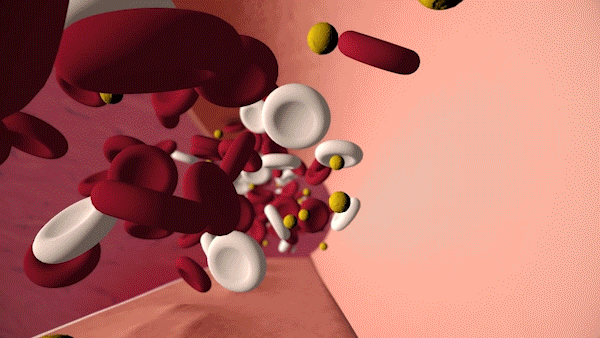
Animation description
Is "bad" cholesterol building up in your arteries? Find out with a simple blood test. Talk to a health care professional about cholesterol screening.
“Talk about cholesterol”
Share these graphics with your audiences to encourage people to talk to their loved ones and health care team about how they can prevent and manage high blood cholesterol.

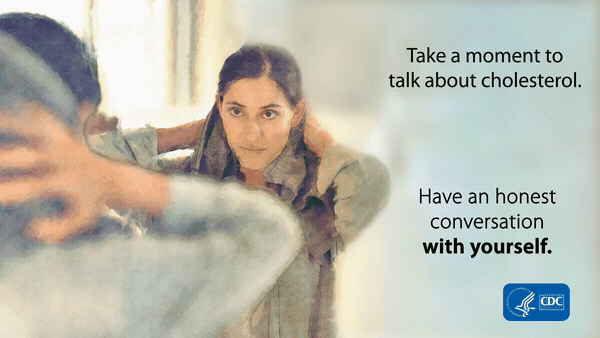
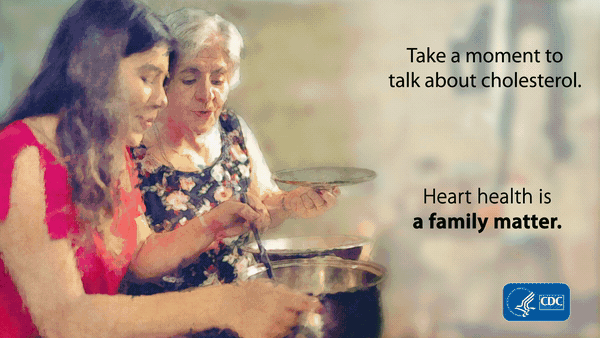
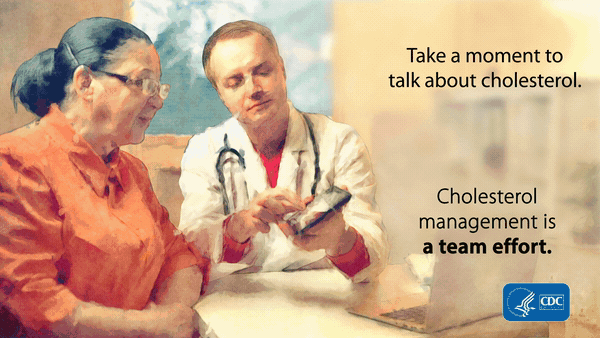
Cholesterol videos
Boost your network: connect with us
- Follow @CDCHeart_Stroke and @MillionHeartsUS on Twitter to share our cholesterol management tweets directly on your pages.
- Share cholesterol management posts and resources directly from Million Hearts® on Facebook.
- Share the latest in cholesterol management from the Million Hearts® LinkedIn page.
Resources
- Million Hearts® Cholesterol Management page: This webpage provides the latest cholesterol guidelines and links to treatment protocols and decision aids that can assist clinical teams and their patients in making informed health decisions.
- Million Hearts® Cholesterol Management Protocols: This webpage features evidence-based protocols, a flow diagram of the American College of Cardiology (ACC) and the American Heart Association (AHA) guidelines to create your own cholesterol management protocol, and a downloadable Atherosclerotic Cardiovascular Disease Risk Estimator.

